Action Oriented
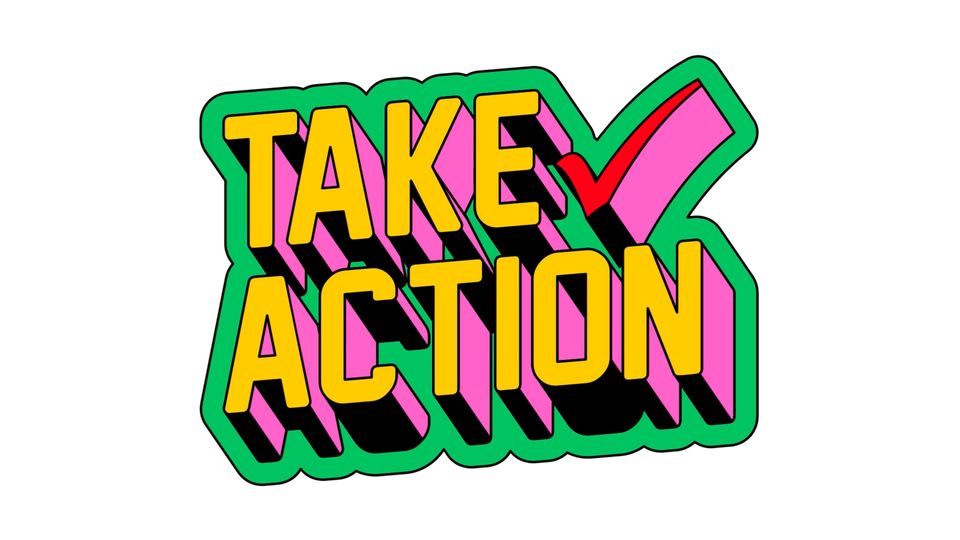
Are any of these statements true?
- You’re not happy with your life.
- Things aren’t going your way.
- People don’t trust you.
There might be a simple explanation.
Hi, this is Mike with the Modern Wisdom Guide.
I’d like to talk to you about a debilitating failure in your life. It's the reason you’re not happy with how your life is progressing, it's the reason people don’t trust you... it’s ultimately the cause of your missed opportunities. These negative results stem from not being action-oriented.
Let’s get a few things out of the way…

Do people call you ‘lazy’? What is lazy? By definition, lazy is ‘unwilling to work or use energy’. You just don’t want to do things…for yourself or others. If you don’t experience a feeling of anxiety or stress when something needs to get done, you might just be lazy.
Imagine you walk by the kitchen and you see a sink full of dirty dishes. Food has been left out on the counter and is starting to attract ants and roaches. Instead of walking over and washing the dishes, dumping the food, and cleaning the counter, you just grab a drink from the fridge and plop yourself down in front of the TV. Basically, if you know there’s something to do, but choose not to do it, not from malice, but just choose not to do it, you’re probably lazy…and if you are lazy, this video isn’t for you.

Are you an irresponsible person? Irresponsible by definition is ‘lacking a sense of responsibility’. And Responsibility itself is ‘the state of being the person who caused something to happen’ or ‘a duty or task that you are required or expected to do’. But with ‘irresponsibility’, you do NOT have a sense of duty to something which is required of you. You may not be aware of your responsibilities–especially if things have always been done for you– or you are aware of your responsibilities and your promises to do your duty but choose not to do them instead. These ‘empty’ promises mean nothing more than the words being said and are then forgotten. If you are truly irresponsible, you are oblivious to the things which need to be done, the responsibilities. They aren’t even in your thoughts, not on your radar, it’s as if they didn’t exist. That being said, if you are irresponsible, truly irresponsible, this video is not for you.

Are you stubborn? The dictionary states Stubborn is ‘having or showing a dogged determination not to change one's attitude or position on something, especially in spite of good arguments or reasons to do so’.
You don’t do something or even take action to prevent the successful completion of that responsibility because you don’t believe in it even after it is proven to be right or true,
You might even have malice or vindictiveness behind this detrimental decision.
You might be adversarial to others and utilize a key position you control or block the progress of others in spite of your own well-being.
This basically means you don’t give a crap what is expected of you and you don’t care what happens to you OR others; basically, maintaining your stance is more important than the good of everyone.
Let’s go back to those dirty dishes.

Someone in your family left those dirty dishes in the sink.
You make a decision to teach this person a lesson at the cost of the health and hygiene of your family and the cleanliness of your home.
If this is you, and you consistently make these kinds of decisions and they are acceptable in your life, then you are probably stubborn and this video is probably not for you.
For people who are ‘truly’ lazy, irresponsible, or stubborn; action is not important, not even recognized, or something to wield as a weapon. These people usually behave in this manner because their environments and support systems enable these unproductive and basically detrimental behaviors…for these individuals, good for you, if you are living a productive and sustainable life while not being responsible to take action for yourself or others, God and the universe has blessed you and the knowledge and introspection we’ll offer in this video probably won't help you.
But, if you are conscious of missed opportunities in your life, if you are aware of difficulties, in particular, your inability to take action…then this video might be for you.
Let’s talk about being action-oriented…
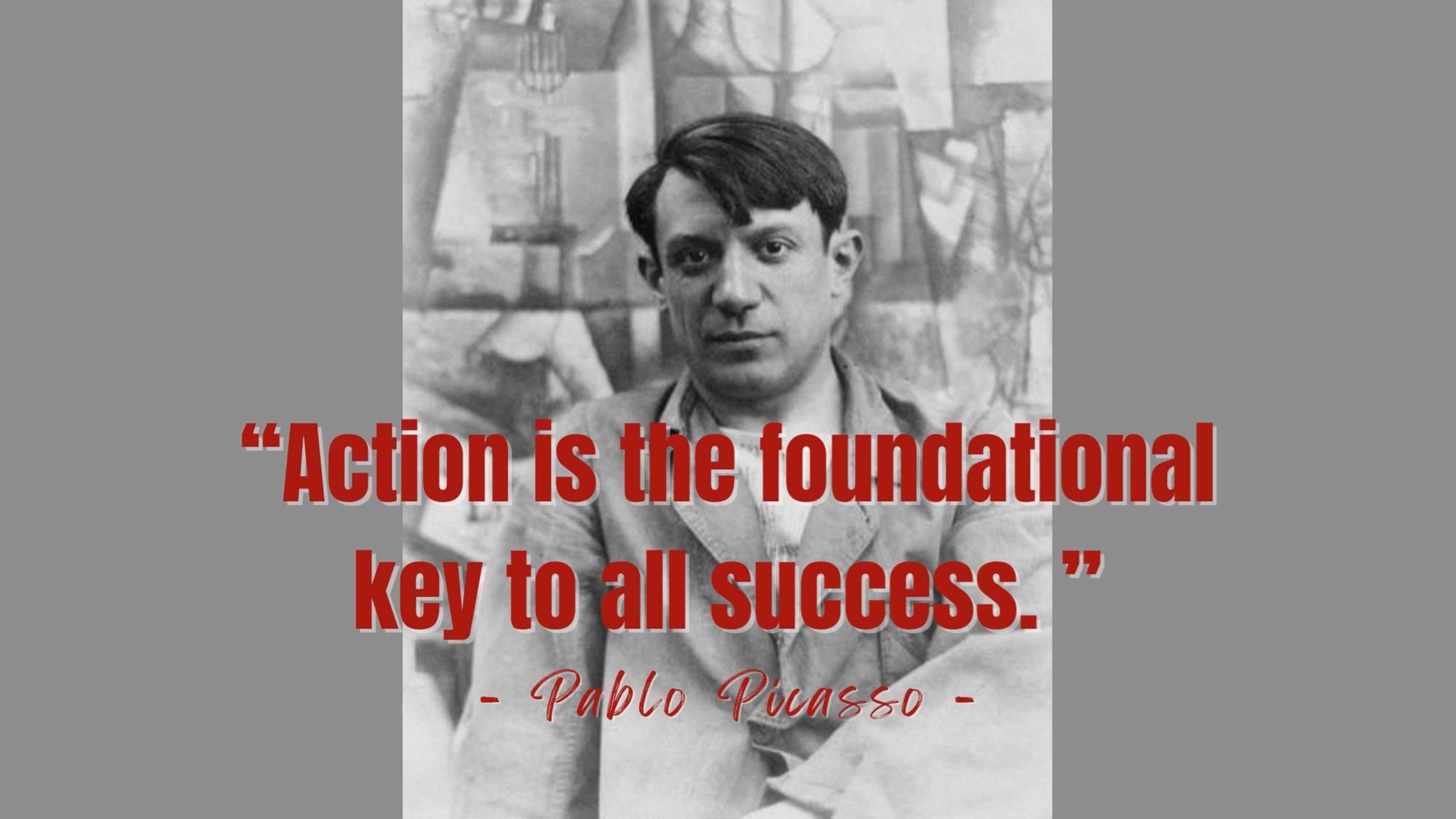
Action is the fundamental building block of success.
In all probability, the biggest reason you’re not achieving the results you're seeking n in your life is you’re Not Action-Oriented.
Something needs to be done and you just don’t do it.
In order to CORRECT THIS, you need to NEED TO IDENTIFY THE CAUSE of this behavior.
You’ve got to PAY ATTENTION TO INDICATORS.
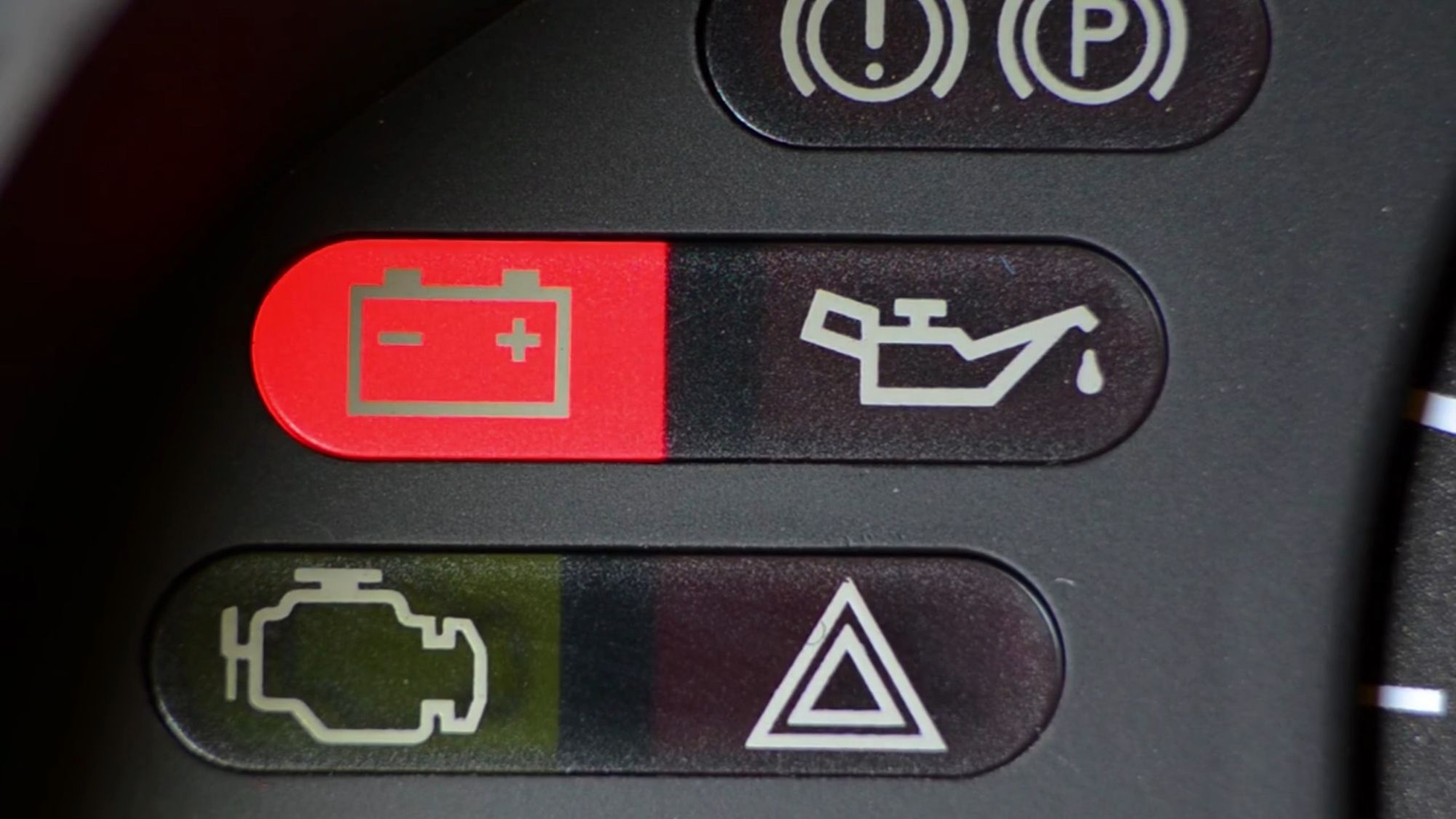
A seemingly harmless, but DEBILITATING INDICATOR is believing you’re LUCKY.
Having a Lucky Mindset

Actually believing you’re lucky, in other words, having a lucky mindset, is operating with an oversimplified focus that luck is the most important factor when any sort of success happens. You acknowledge that other factors are involved to a certain degree, but the emphasis, the primary reason that success occurs is luck.
Some individuals actively believe they’re lucky, you can find these people pulling the handles of slot machines in Vegas. But most people don't even know they’re operating with a lucky mindset; these people can be heard saying things like ‘the virus won’t affect me or my family’ or “things always seem to work out for me in the end”.


Someone with a lucky mindset might say, he’s so lucky to have such a successful business. She’s so lucky to have such a loving family. He’s lucky he’s so healthy. There’s a focus only on the result or outcome. There’s little to no acknowledgment given to the amount of work put in over a period of time to bring about a successful result. Without acknowledging the work it takes to make something happen, people operating with the lucky mindset sabotage themselves with a false expectation that great results come easily and quickly.
When you’re operating with a lucky mindset, you do the bare minimum of work you THINK it takes to accomplish something, sometimes no work at all believing that praying will make things happen. There’s also an underlying belief that every single step will proceed with a flawless execution the very first time without any need for practice or preparation.

If you’re operating with a lucky mindset, you have an idea for something important and become fixated on the dream of a ‘perfect’ outcome. It could be a business opportunity that could make a lot of money. It could be a weight loss plan that promises an amazing transformation. You become entrenched in a daydream about how successful your endeavor will be but the steps to get there and, of course, the actions it takes to ACTUALLY achieve this end never happen.
A trademark of having a Lucky Mindset is being so convicted of the impact of positive thinking, that simply thinking positively and believing that you are lucky, is enough to bring great results. You sit there with no physical action having a firm conviction that positive thinking and belief in your luck will perfectly accomplish the countless steps it takes to achieve a successful result. You’re convinced thinking positively and believing that you are lucky is reason enough to do nothing and to leave everything up to chance…because it was meant to be. You believe that through positive thinking and belief in your luck, you guide chance in your favor at every single step to have things fall into place perfectly without having to take action…because you’re just that good.
The odds of continuous perfect outcomes at every step with perfect timing are virtually impossible. No one is that lucky. Unfortunately, individuals with Lucky Mindsets don’t understand that Success is the result of both luck and more importantly, consistent hard work. It is the intersection of opportunity (luck) and ability (action).
Imagine a sliding scale that shows success as a combination of luck and hard work. On one end of the scale is luck. On the other end of the scale is hard work. People who operate on a lucky mindset will sit more towards the side of the scale where more luck and less hard work is the cause of success. More realistically, successful people will sit farther toward the scale where success is more from hard work than from luck.


The main distinction between consistent hard work and luck is that the choice and ability to work hard is within your control while luck is completely out of your control. Through your actions, you act upon your world and environment. Having a purely lucky mindset is about giving up your ability to influence the world with a belief that your desired result will magically happen.
There may come a time when someone with a lucky mindset takes action in some way that gives them a positive step forward towards their goal. If they can do this enough times and make the connection that taking action brings desirable results. The conditioned stimulus of taking action combined with the conditioned response of desired outcomes will wean those people off the lucky mindset. Eventually, they’ll see that they generate their own luck in the form of opportunities that arise from taking action.
Fear of Failure
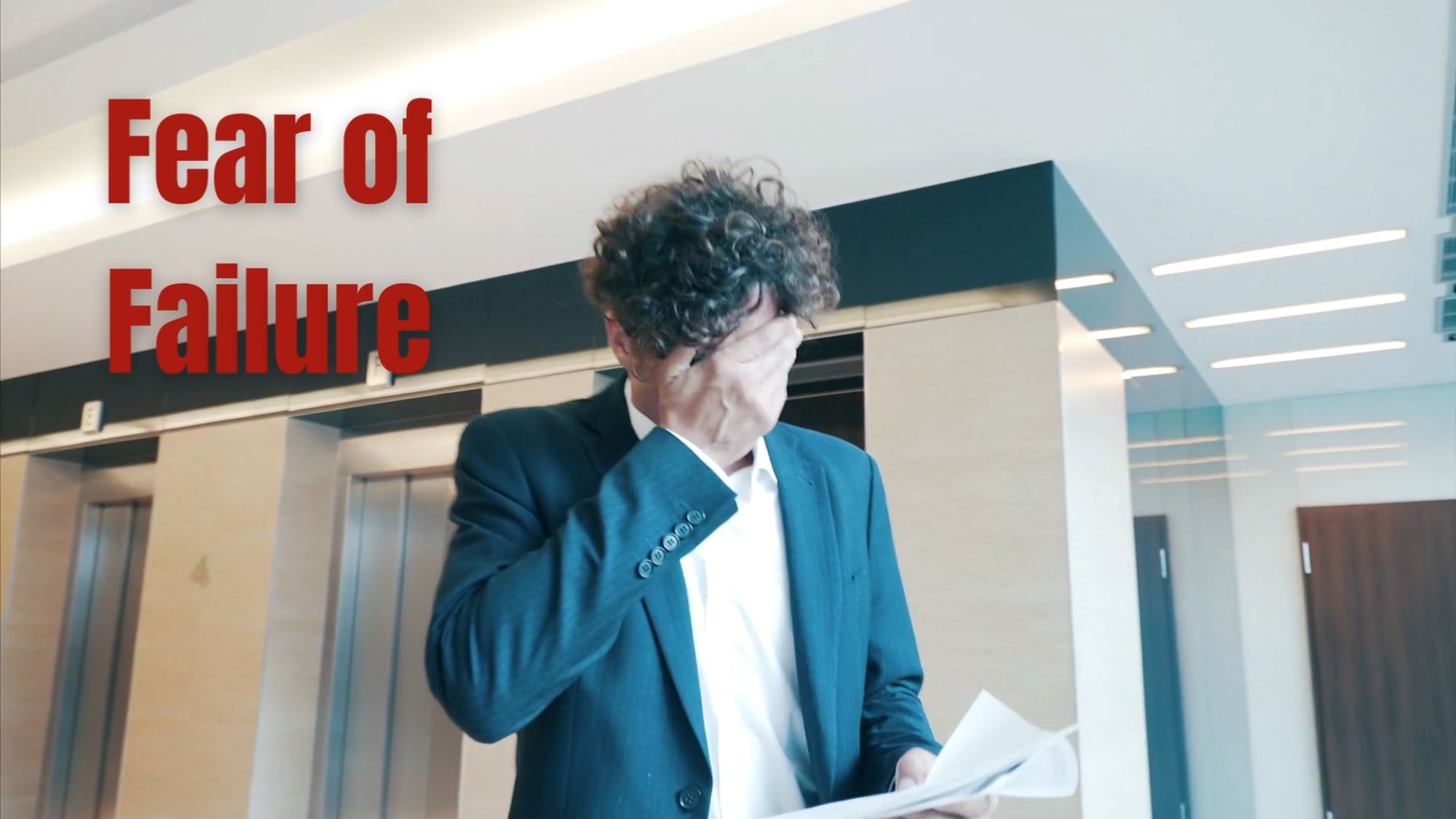
If there is a great result you want in your life, and you successfully understand and get past operating solely with a lucky mindset, the next limiting indicator you’re not taking action is being consumed by a fear of failure. This fear of failure prevents you from taking action because you think what you do will fail and you'll be labeled a failure.
Like a lucky mindset, as well as all of the ‘indicators’ in this video…The irony in being consumed by a fear of failure is that you fail by default because no action is ever done on your part to influence success! An example would be a runner who is so scared that he'll lose the race, doesn’t even cross the starting line, and therefore loses by default.
Failure is inevitable, it is a fundamental building block of learning. Failure is when the universe holds us accountable for our actions, inactions, and inabilities and reminds us that what caused a particular failure is what NOT to do in future performances. Failure is an integral part of every process! The bigger the goal or achievement, the bigger the failures you’ll experience along the way.
If you have a fear of failure, somewhere along the line you were probably made to feel embarrassed, ashamed, guilty, or belittled for not meeting an expectation. This probably happened very early in your life. At this impressionable young age, a negative association with failure formed powerfully and quickly without someone there to provide a positive context for why some event had an undesirable result. As such, this created an aversion to taking action on issues that make you accountable for negative results. Unfortunately, this aversion also keeps you from taking action on issues that could generate great success and reward.
The richest and most fulfilling experiences in your life are full of failures and setbacks along the way. Instead of having a fear of failure, give yourself grace and let failure become your teacher! Get up and try again. Your future self will thank you for learning from failures and being smarter, stronger, and more successful for doing so!
Procrastination

If you’ve made it this far and you finally get over having a fear of failure, you’ve started taking action and moving forward. The next indicator I’d like you to be aware of is procrastination. Procrastination is waiting until the last minute to take action which leads to failure.
Instead of front-loading tasks and taking care of everything as soon as you become responsible for them or well before the tasks are due, someone who procrastinates will backload their tasks, addressing these tasks without a responsible grasp of the time or effort it will require to complete properly. Not only do they address responsibilities at the last minute, they also unrealistically expect an acceptable result if completed. You leave for work at 7:59 with full knowledge work begins at 8, having an unrealistic expectation of the time it will take you to get there and your ability to address any reasonable problems along the way which might delay your progress. This is also known as ‘setting yourself up for failure’.
Procrastination transforms a desire to do well and good intentions into a frantic and stressful attempt to save yourself from failure. Instead of allocating a reasonable amount of time to the pursuit of excellence and success, procrastinators are scavenging time from other obligations and compromising excellence for survival. The lesson here is ‘speed is the enemy of accuracy’, or in other words, if you’re trying to get something done in a fast and hasty manner, you’ll be sacrificing accuracy as a result.
Procrastination is a behavior that starts off with you saying to yourself, “maybe if I wait long enough, I won’t have to do this” or “if I wait long enough, maybe someone else will do this for me.” It’s a passive attempt to avoid responsibility. Some people do this because it makes them feel in control, making others wait for them; some are just going through psychotic states, playing video games before school; and some just have an ignorant overestimation of their own ability to get things done.
Procrastination will always set you up for failure. Procrastination puts a strain on relationships, responsibilities are compromised, trust is broken, respect is lost and animosity follows. Simply put: people can't count on procrastinators. It leads to a lack of trust because people will start seeing they can’t depend on you to perform good work. Procrastinators often fall into a spiral of self-deprecation, often losing sight of higher achievement. Any way you look at it, procrastination will always lead to failure.
Waiting until the last minute to do things doesn't make obligations go away or make them less important. It makes important future obligations the failures of your past, creating a habit and a running track record of failure. The remedy to procrastination is to set task-oriented deadlines for yourself and respect those deadlines. You’ll find that your respect for yourself grows as your respect for completing tasks grows.
Analysis Paralysis

After overcoming a lucky mindset, fear of failure, and procrastination, the last indicator we’ll be addressing that can lead to inaction is analysis paralysis. Analysis paralysis is the state of being self-overwhelmed with a seemingly endless decision tree based on actual and anticipated results from facts that actually or are assumed to exist. This basically means that you’re thinking and planning so much, for every single possible outcome, that thinking and planning become more important than taking action. In fact, taking action isn’t even on the radar anymore.
In the most extreme cases, you wouldn’t feel ready to move unless you’ve thought out every single situation that could go wrong. This is absolutely debilitating. Weeks, days, years, and decades could go by thinking and planning without a single action that would move you even one step towards successfully achieving your goals.
You are operating under the impression that you have the ability to account for every single circumstance before you act. Without getting started you’re unable to collect real data points, feedback, and experience. Even with data points, feedback, and experience, trying to anticipate every single possibility of failure and success and solutions for each of their instances would be debilitating. Most paths to success are littered with small successes and failures. You would only know what modifications need to be made to your plan by taking action and receiving feedback on successes and failures. If you have never taken action or have never gone through experiences of overcoming an obstacle, how would it even be possible to anticipate what can, might, or will go wrong? It would be a decision tree from hell based on nothing but theory and conjecture.
For as much thinking and planning that happens in analysis paralysis, the actual implementation of this plan is not even a priority. Why? Because there’s so much to plan for there’s no time to take action! Analysis paralysis tricks you into believing that anything other than a complete plan will set you up for failure. You spend precious time, energy, and resources planning for something that you forget needs to be implemented. The action of taking action becomes more and more distant in your mind’s eye. What happens over time, analysis paralysis leads to the inertia of non-action that becomes exponentially more difficult to reverse the longer this behavior continues.
The best remedy for analysis paralysis is taking action. It brings your awareness to the present moment and keeps you engaged on what is working for you and what needs to get revised and improved. Planning should never be more important than taking action. So start taking action, and learn from the mistakes and failures that will inevitably come up.
EXAMPLES:
Now let’s examine how these patterns of negative behavior operate in the real world…
Learning a New Skill: Electric Guitar

Let’s say you want to learn to play the electric guitar. The first thing you’ll need is an electric guitar and an amplifier.
Then you’ll need to learn the basics of the guitar so you go onto YouTube and see that there is a virtually endless selection of videos teaching the basics of guitar. After a barely half-assed attempt to learn, you decide that it would probably be better to get lessons but then you keep putting it off because you don’t know what to look for in a good instructor. This is an example of analysis paralysis.
As you go along, dabbling, dragging your feet on putting off good, honest practice, you learn that there’s so much equipment available out there, tuners to be able to tune your guitar, locking tuners for your strings, music stands, loopers cables, more powerful amps with more features, and the list goes on.
You become overwhelmed and put things aside for a while. Days, weeks, months, years, and decades go by and one day you look at your dusty guitar in storage, if you ever even bought one in the first place, and think to yourself, yeah, I wanted to learn guitar once!
What indicators do you see? Having a lucky mindset, thinking, “how hard can it be? I just have to practice right?” You start practicing and of course, your fingers don’t have the muscle memory to play like the more skilled players you see on YouTube and you don’t want to try anymore because you’re just not getting it; you’re afraid to fail. Then you might get caught up in all of the equipment available and become overwhelmed then not buy anything. This is analysis paralysis. Finally, instead of practicing and slowly, consistently building your skill. You procrastinate. You just keep putting the learning off and eventually die without learning even the basics of guitar playing.
You can see those seemingly harmless thoughts will lead to seemingly harmless behaviors. These behaviors might not have a big effect on your life at the moment, but over time, these behaviors will lead to lost opportunities throughout the course of your life.
Going on a Date

Going on a date is another example. You’re sitting at a coffee shop and you see someone that looks like the love interest of your dreams. She’s sitting there doing some work on a computer and you make some observations. She’s using a Mac, you see that she’s drinking tea not coffee, and she has been texting with someone over the last few minutes and laughing as she messages. You think to yourself that you’re going to approach her and talk about how you recently read about how the Japanese Tea ceremony tradition started. Or you could talk about the newest MacBook Pro and the capabilities of the new chip and impress her this way. She’ll be so impressed with your technical knowledge and how cultured you are, that she won’t be able to resist giving you her number.
STOP.
You’re experiencing analysis paralysis trying to figure out the best approach and you get so caught up in your head about how different scenarios will play out, that you don’t even approach her in the first place. Instead of being in your head, come up with a very simple, one-step plan to approach her and start up a conversation. Simply walk up and say hello and carry the conversation from there!
Perhaps you did get her contact information and the conversation goes surprisingly well after you made a decision to say hi and be friendly and engaging. She agrees to go out to dinner with you next week. All week you think about the best restaurant to go to. You’re so excited to go out on a date with her. You’re so excited about the dinner date that you keep putting off making a reservation at your favorite sushi restaurant. On the 6th day, you call and see if there are reservations. But because you waited until the last minute, there are no reservations left. You procrastinate, thinking that you were going to be lucky since the hostess at the restaurant knows you and would be able to work her magic and get you a table. It turns out that the restaurant is just too crowded and there’s nothing the hostess can do. After not getting your first choice restaurant, you pick a time at a different sushi restaurant that comes in a close second according to restaurant ratings.
On the night of the date, your mind is already planning out how the conversation will go. You want this dinner to go so well and you want to win her over so badly that you’re again, trying to plan out all the ways that your date will love you. “What should I tell her about myself? Should I try to impress her with the school I went to? Should I tell her about all the people I know? Should I tell her about all the different places in the world I’ve visited?” STOP! Again you’re experiencing analysis paralysis or a fear of failure that they might not like you if they knew the person who you really are. Instead of being focused on what-ifs, start being present, being yourself. Be assertive and make it an intention to ask her a question as much as you like to talk about yourself.
Develop a sense of recognizing when these indicators arise. Catch yourself. It’s rare that you’ll have the companion of your dreams just walk into your life out of nowhere. Plan to take action at every opportunity. This is why you want to be proactive. The worst that someone can say is no. Know what you are looking for, and know what you want. If you want to be treated well, don’t stand for anything less than what you deserve. Have a plan on where you’d like to go and what you’d like to do on your date. Not only is it attractive to have a plan and lead, it also conveys confidence and the ability to accomplish things. Finally, it’s foolish to expect perfection for anything the first few, or realistically, the first few dozen times you do something. The main thing is knowing that failures will always be a part of getting good at something. Take your lessons from your failures and keep trying.
Getting a Job

Getting a job is one of the most important tasks that you’ll have in your life as this is what allows you to support yourself and if you want, eventually a family. This can be a very smooth, or excruciating process depending on your attitude and approach.
You may start off by searching or bookmarking available positions you see on a job posting site. After a while, you take your time and some of those jobs may still be there, but many won’t be. You only go through the first page of job postings and think that’s all the research you need. Although there are hundreds of jobs, you don’t feel the need to search further because you believe you’ll land a good job. Having a lucky mindset, you operate with the least amount of work and expect CRM results.
Working on your resume, you get so caught up in getting the perfect formatting, you almost forget that your goal is to find a job. Doubt creeps in because your GPA wasn’t very impressive and you think that any employer will see the GPA and refuse to even give you a callback. This is an example of fear of failure. You don’t even want to try for a dream job with great benefits, work hours, and pay because you have an unreasonable fear that your GPA has relegated you to jobs no one else wants because of your grade point average. Be assertive with your goals. If your goal is to get a job that you want, quench inaction from fear of failure by knowing what skills you bring to the table, according to the needs of the job.
When you get called in for an interview, you do your research about the company 5 minutes before the actual interview and then walk in trying to keep it all together and hope that the interviewer doesn’t realize that you were so last minute in what you needed to do. Instead of procrastinating, create a plan to narrow down 5-10 of your most desired jobs. Have a clear picture of what your skill set is and make sure that they match the required qualifications. For each company, know their competitors, and do your research prior to the interview to know competitors, what the company does, and some history of the company you’re interviewing at.
Being proactive and taking the time to prepare can give you such a big advantage when looking for and going through the action steps of finding a job. Not only will you be more confident because you know what you have to offer, but you are also aware that you are interviewing the company just as much, or even more than the company is interviewing you! When you take the right and consistent action to grow your skillset over time, you build more and more leverage for yourself to create the best outcome, landing an incredible job!
Conclusion:
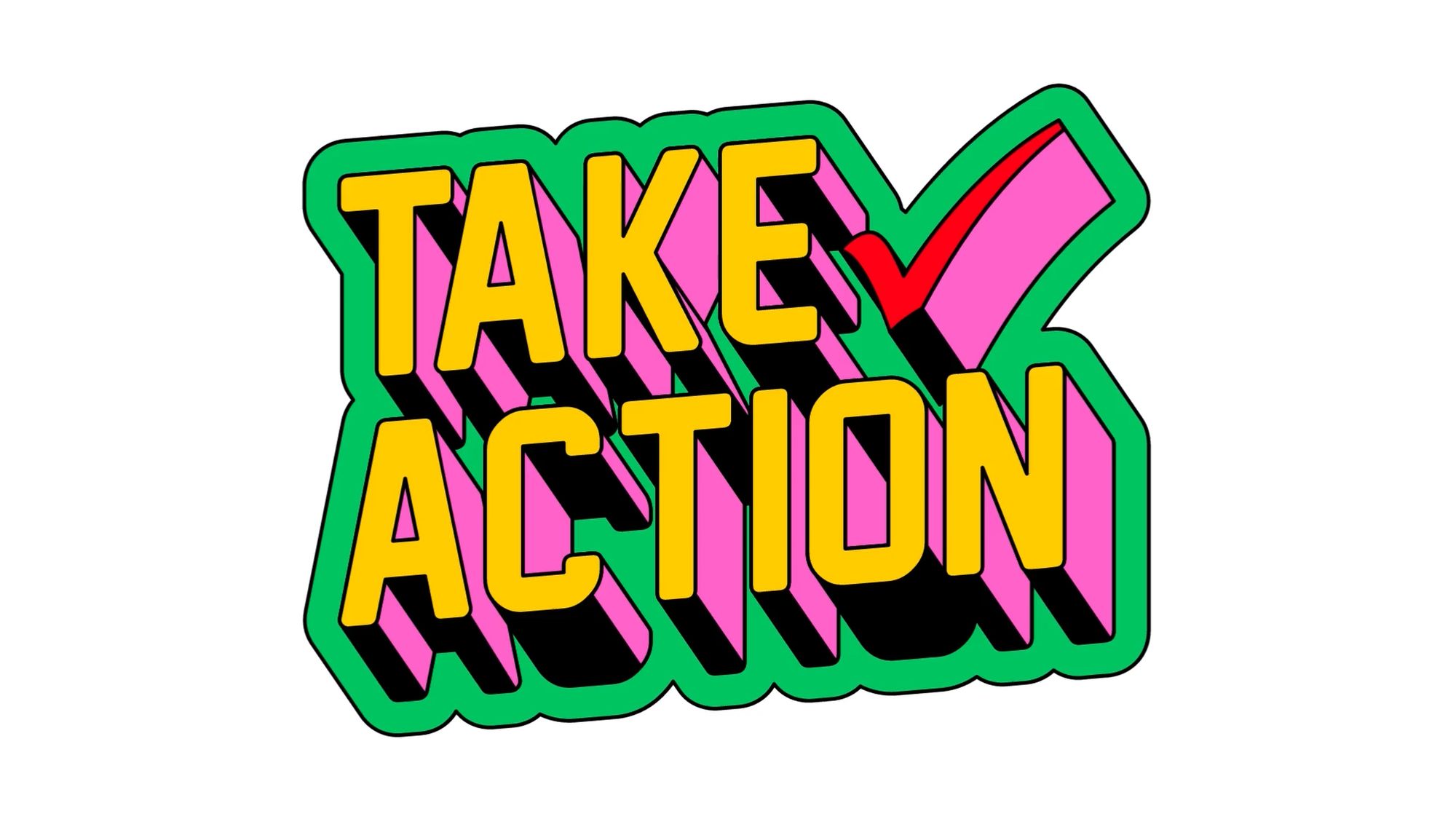
We talked about why being action-oriented is a cornerstone of your success and how taking action allows you to be the initiating source for creating the results you want. We also discussed how not being action-oriented is causing you to fail and not experience the results you’re hoping for in your life. We also discussed how being aware of specific indicators, a lucky mindset, fear of failure, procrastination, and analysis paralysis, are the underlying causes of not taking action! Finally, we went through a few examples of how not being action-oriented sets you up to fail.
By taking action, you take back influence in your life. The more action you take, the more you begin to act on the world, instead of having the world act on you. It allows you to engage and collaborate in the world instead of always being at the effect of the world. When you're able to foster this influence through your actions, you’ll see that failure is just as much a choice as success is. Now you can choose and begin to create the results you want in your life.
Thanks for joining us and we’ll see you next time on the Modern Wisdom Guide!
